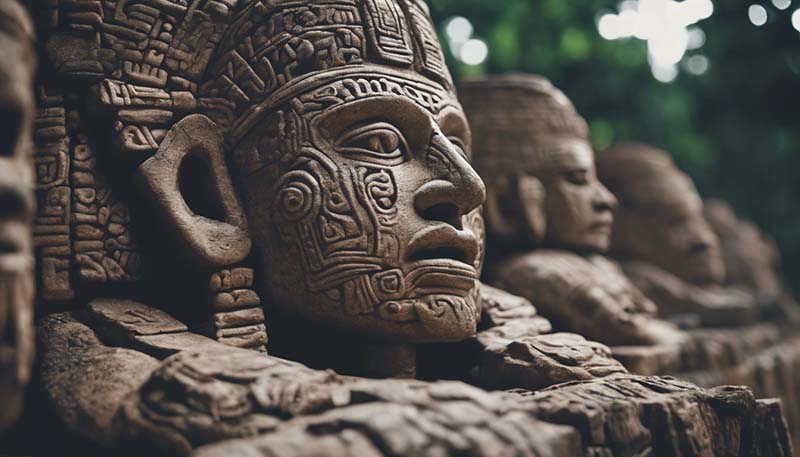The Mayan civilization was one of the most advanced and sophisticated cultures of the ancient world. Emerging around 2000 BCE in the region that is now Mexico, Guatemala, Belize, Honduras, and El Salvador, the Maya developed a complex society with unique accomplishments in architecture, mathematics, astronomy, and writing. Pre-Classic Period (2000 BCE - 250 CE) The Pre-Classic Period marks the early development of the Maya civilization. During this time, the Maya began to establish city-states, each with its own ruler and religious practices. The Olmec civilization, which predates the Maya, had a significant influence on the early development of Mayan art and culture. Advertisement Classic Period (250 CE - 900 CE) The Classic Period is considered the height of the Mayan civilization. It was during this time that the Maya made significant advancements in their calendar system, developed hieroglyphic writing, and constructed monumental architecture, including temples, palaces, and observatories. The city-states of Tikal, Palenque, and Copán were among the most prominent during this period. Post-Classic Period (900 CE - 1500s) The Post-Classic Period saw the decline of the southern Maya city-states and the rise of new centers of power in the north, such as Chichen Itza and Mayapan. The civilization faced a series of challenges, including droughts, warfare, and overpopulation. The exact reasons for the collapse of the Maya civilization remain a topic of debate among historians and archaeologists. Spanish Conquest and Beyond Following the arrival of the Spanish in the 16th century, the Maya faced new challenges, including forced labor, disease, and the imposition of Christianity. Despite these hardships, the Maya people and their culture have endured, with millions of Maya living in the region today, preserving their language, traditions, and heritage.
The Ancient Maya: A Civilization That Captivated the World
The History of the Mayan Civilization

Comments